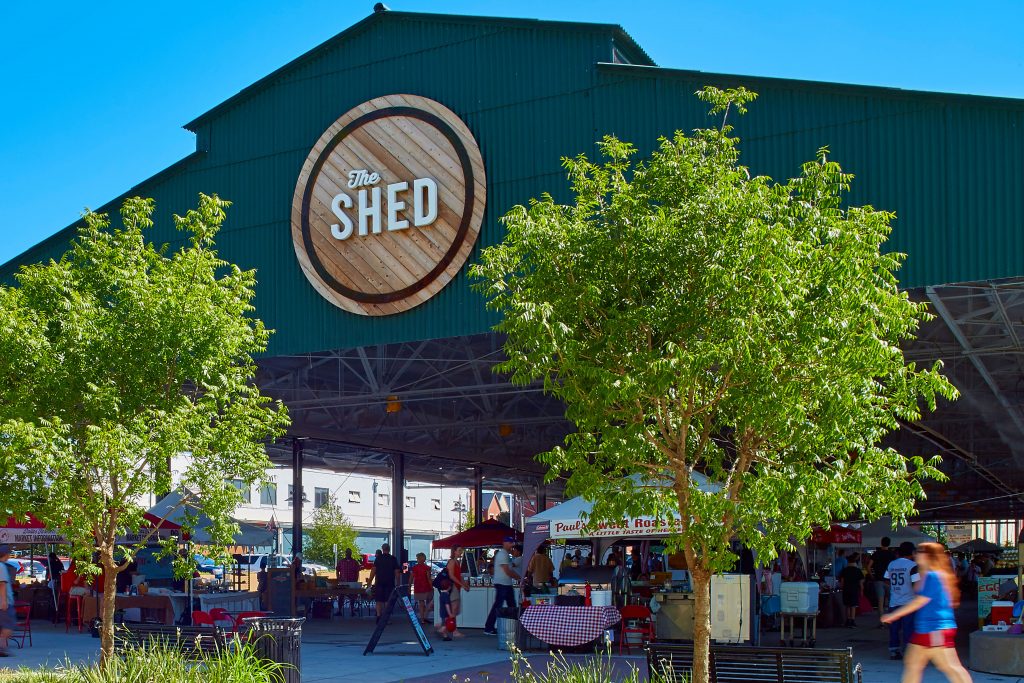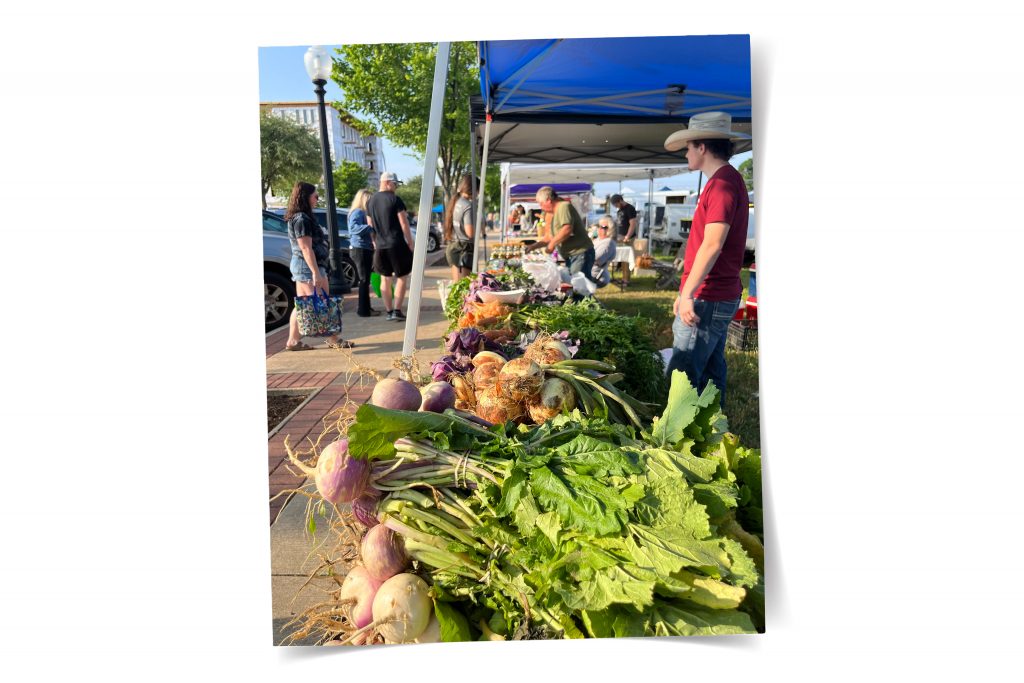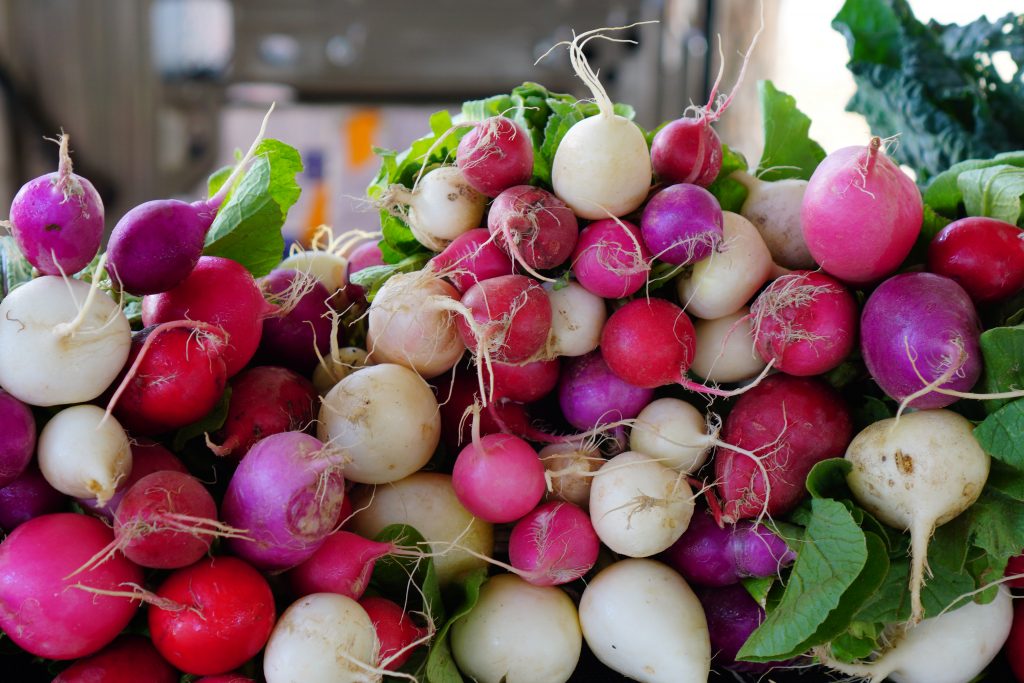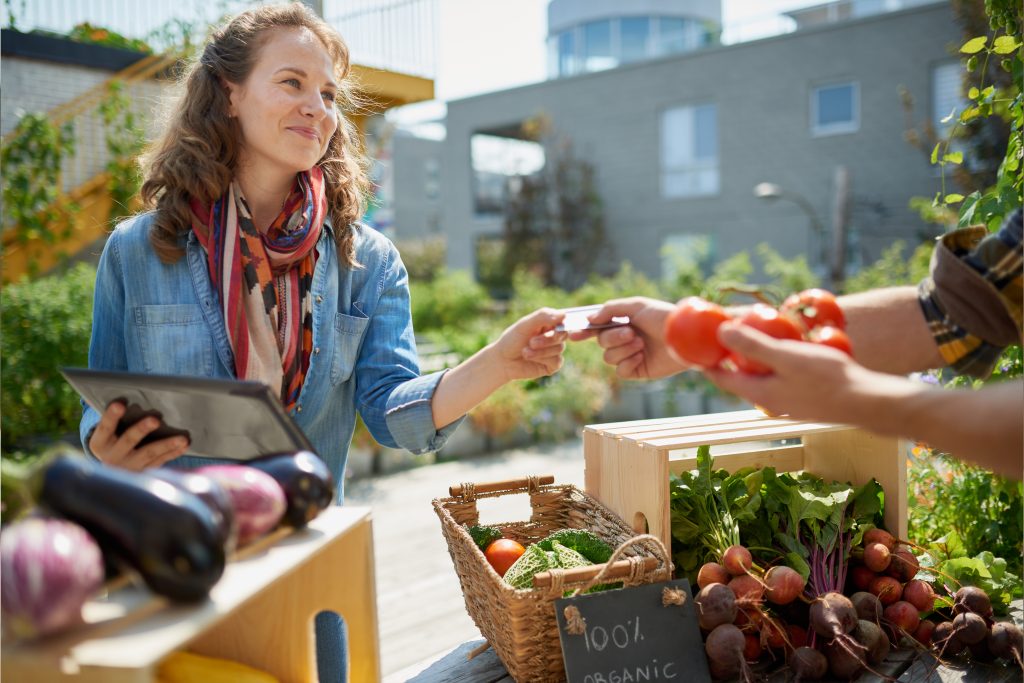How to Sell at Farmers Markets in Texas
There has never been a better time for makers of all stripes to turn their creative hobbies into new revenue streams. Craftspersons and artisans can find many ways to bring their wares to market. Online platforms like Etsy and social media sites like Instagram have enabled talented makers to create new businesses — sometimes entire new careers — out of their passions that would have once been reserved for families and friends.
But one of the best ways to create a business out of your creative pursuits remains a tried and tested traditional marketplace: the local farmers market. In our summer magazine, we dive deep into the dozens of farmers markets staged in small towns and big cities throughout Texas. Depending on what you make and what you’re passionate about, there is likely a market somewhere in Texas where you can find an audience eager to discover your handiwork. But starting out as an exhibitor at a farmers market can be daunting. How do you start selling at a farmers market? What’s the best way to stand out? Is it really worth it to the bottom line to spend a day in the hot Texas sun hoping the hidden gem someone is looking for happens to be your product?
Worry not. In this companion piece to exploring the joys of farmers markets, we will delve into the rich history of these vibrant marketplaces, provide insights on becoming a vendor, and offer some advice on how to sell at a farmers market.

A Tradition as Old as Texas
Farmers markets have long been an integral part of Texan culture, tracing their roots back to the earliest days of the state’s agricultural heritage. In the 19th century, as settlers arrived in Texas, they brought a tradition of communal exchange that transformed into the vibrant marketplaces we know today. These markets served as vital hubs where farmers, artisans, and community members came together to trade goods, exchange stories, and forge lasting connections.
One example of this kind of market that persists today is Canton’s “First Monday,” known as the world’s largest flea market. This market originated in the 1850s as a small local trade day and has since transformed into a massive monthly event attracting visitors from across the nation. The Canton market boasts a wide array of vendors offering everything from antiques and collectibles to crafts, clothing, and fresh produce. Its success lies in the unique atmosphere it creates, blending the charm of a traditional market with the excitement of a festival.
As Texas continues to evolve, modern farmers markets play a significant role in connecting communities with local farmers and artisans. The Dallas Farmers Market and Barton Creek Farmers Market are just two examples of the many thriving markets that embody the state’s spirit of entrepreneurship and sustainability. Texas’ market meetups serve as vibrant reflections of the state’s rich history and diverse culture. These gatherings not only provide opportunities for economic growth but also foster a sense of unity and pride among Texans, ensuring that the tradition of market meetups remains an integral part of our state’s identity.

Becoming a Vendor
Becoming a Texas farmers market vendor offers an opportunity to share your passion and talent with new audiences and connect with other artisans and craftspersons who help keep these Texas traditions alive. Requirements for participating in farmers markets vary, but there are a few key points to keep in mind when getting started:
Do Your Research: Begin by exploring the farmers markets in your area and understanding their specific guidelines and application processes. Consider the demographics of the market attendees and the types of products already available. This will help you identify a niche for your offerings and tailor your business accordingly.
Permits and Licenses: Familiarize yourself with the necessary permits and licenses required to sell your products at a farmers market. Depending on what you plan to offer, you may need a food handling permit, health inspections, or specific licenses for certain crafts.
Create a Splashy Presentation: Invest time and effort in creating an appealing display that showcases your products in their best light. Consider using eye-catching signage, aesthetically pleasing packaging, and engaging product descriptions. Bringing your wares to market requires, well, marketing. Take some time to understand your audience, what they are looking for, and what kinds of detail, unique flare, or local charm may capture their attention.

Building a Successful Maker Business
While passion and a quality product are fundamental, there are several best practices to ensure your journey as a vendor at a farmers market is met with success:
Emphasize Unique Quality: People who shop at farmers markets appreciate locally sourced, high-quality goods. They are at farmers markets to find the kinds of items they can’t find at chain stores or online. Make sure you emphasize the one-of-a-kind qualities of your wares. Whether you’re offering freshly baked bread, handcrafted jewelry, or organic produce, make sure each item tells a story about your craftsmanship and dedication.
Establish Relationships: The beauty of farmers markets lies in the sense of community they foster. Take the time to build relationships with your fellow vendors and market organizers. Collaborate on events, offer cross-promotions, and support each other’s businesses. By becoming an active member of the market community, you’ll strengthen your network and attract loyal customers.
Know Your Customers: Another thing that attracts people to farmers markets is that they can meet the people creating the products they buy. Help enhance this unique shopping experience by taking the time to get to know your customers. Engage with customers by sharing the story behind your products, offering samples, and providing knowledgeable recommendations. A friendly smile and a genuine connection can go a long way in building customer loyalty. And even if the potential customer you get to know doesn’t purchase an item the first time they visit your stand, establishing the foundation of a relationship will increase the likelihood they’ll return.
Embrace Your Inner Texan: Farmers markets are all about celebrating the local. Whether it’s incorporating local flavors into your baked goods or drawing inspiration from traditional Texan craftsmanship, paying homage to the state’s history and diversity will resonate with customers and set you apart from the competition.

Managing Success — and Expectations
For those who dream of turning their hobbies into thriving businesses, Texas farmers markets offer a remarkable platform to showcase your talents, connect with the community, and create a sustainable livelihood. But it is also hard work. The journey from hobbyist to successful vendor requires diligent research, careful planning, and a commitment to showing up week after week, even when the items aren’t popping off the shelf. But ultimately, the appeal of becoming a vendor at a farmers market is about more than the bottom line. It is about sharing your talents with the public and participating in a tradition that helped build Texas’ identity and culture.
So, whether you’re a master baker, a skilled craftsman, or an innovative culinary artist, take that leap of faith. Who knows, your homemade jams, hand-stitched quilts, or mouth-watering barbecue sauces might just become the talk of the town, tantalizing taste buds and captivating hearts, all while living the dream of turning your beloved hobby into a thriving small business.
Kickstart your homemade hobby with DIY ideas, such as natural mosquito repellants, aromatic handsoaps, or unique pressed flower arrangements. Now that you know how to sell at a farmers market, you can transform any passion into profit!
© 2023 Texas Farm Bureau Insurance



